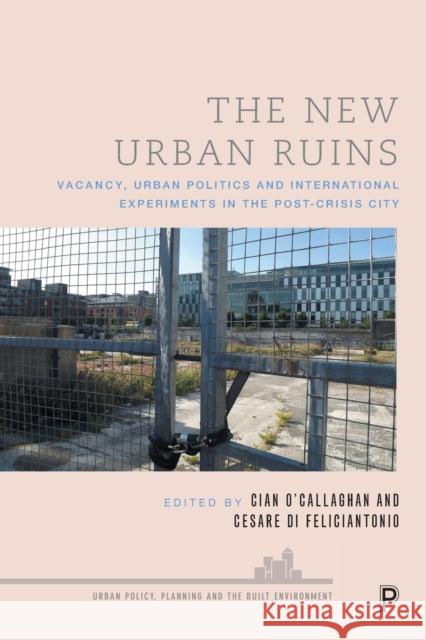The New Urban Ruins: Vacancy, Urban Politics and International Experiments in the Post-Crisis City » książka
topmenu
The New Urban Ruins: Vacancy, Urban Politics and International Experiments in the Post-Crisis City
ISBN-13: 9781447356882 / Angielski / Miękka / 2023 / 276 str.
The New Urban Ruins: Vacancy, Urban Politics and International Experiments in the Post-Crisis City
ISBN-13: 9781447356882 / Angielski / Miękka / 2023 / 276 str.
cena 138,58 zł
(netto: 131,98 VAT: 5%)
Najniższa cena z 30 dni: 133,80 zł
(netto: 131,98 VAT: 5%)
Najniższa cena z 30 dni: 133,80 zł
Termin realizacji zamówienia:
ok. 30 dni roboczych
Bez gwarancji dostawy przed świętami
ok. 30 dni roboczych
Bez gwarancji dostawy przed świętami
Darmowa dostawa!
Kategorie BISAC:
Wydawca:
Bristol University Press
Seria wydawnicza:
Język:
Angielski
ISBN-13:
9781447356882
Rok wydania:
2023
Numer serii:
000951802
Ilość stron:
276
Oprawa:
Miękka
Wolumenów:
01











